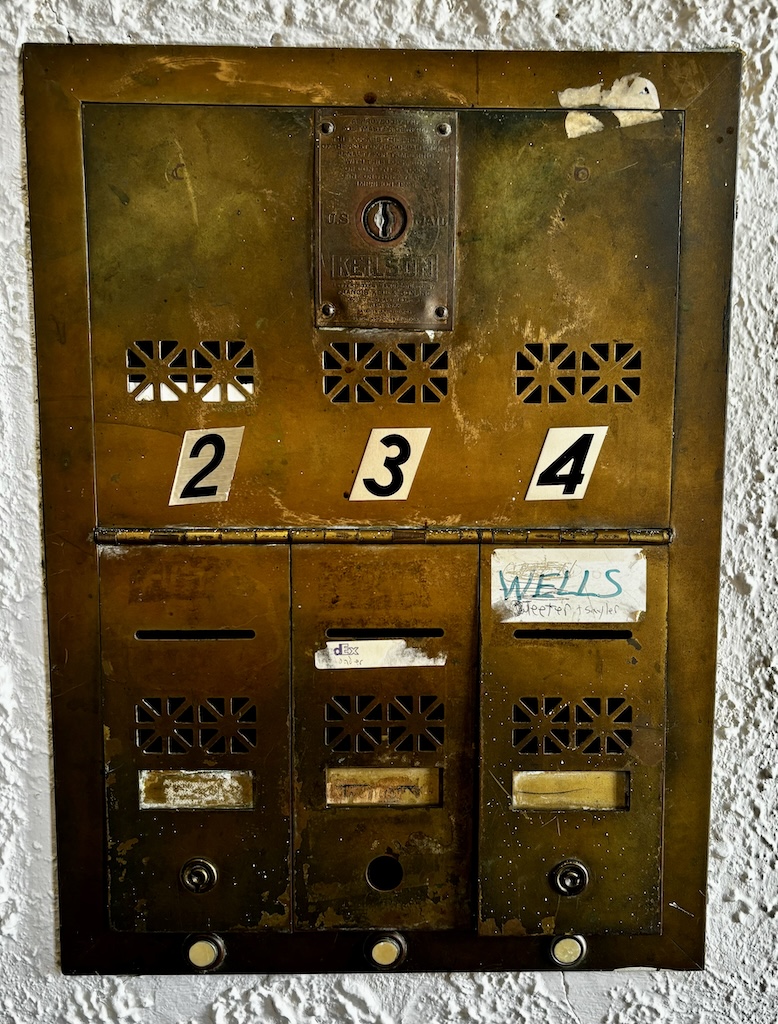
Category Archives: Miscellany
Calendar Project (Reprise)
I’ve got a thing about calendars. That’s not quite right. I’ve got a thing about remembering when things happened. I’m not good at that, even important stuff. My primary objective in starting this blog was to have some place I could write things down and find them later. Favorite lines from movies or a TV show. Excerpts from books. I keep a pen handy when ready a book so I can underline favorite passages and/or make notes in the margins. Did this mostly in novels but as I started reading more non-fiction, I found those books tended to get more notation. When I finished the book I transcribed those passages to a file and saved them. Once I started blogging those notes became blog posts. (Index page)
In my younger —pre-web— years, my notes were written or typed. I wasn’t very consistent with my journals but I did manage to save mosts of them (now as PDFs)
When I started working at Learfield Communications in 1984 I had to keep a calendar. This is my desk calendar from June of that year, my first full month on the job. If you hover over a date you might see the entry. I quickly moved to a spiral-bound calendar.
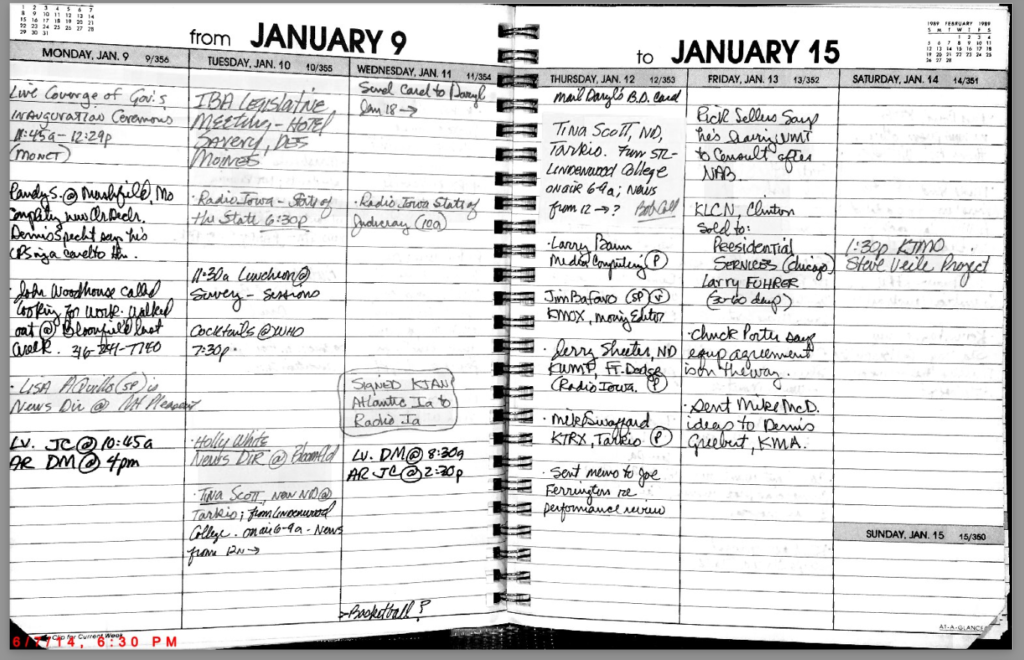
And eventually to the Day-Timer Calendar (of various sizes). I used those for the next few years, even after we had computers on our desktops.
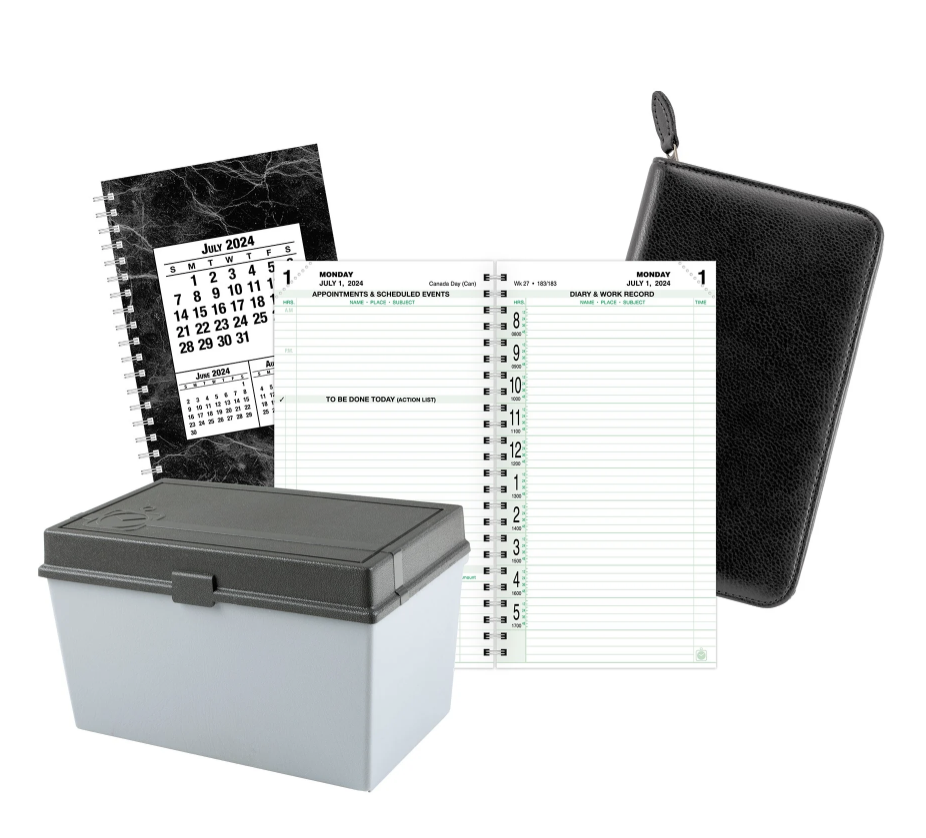
I started using Google Calendar when it launched in the summer of 2009 and used it for almost everything, linking to relevant files (pdf, jpg, mov) in Google Drive. Google Calendar quickly became my daily diary.
In November of 2014 — a couple of years after I retired— I decided to get rid of a shelf-full of Day-Timers to make room for books. Before burning them I went through each day from 1984 to 1999, creating a corresponding entry in my Google Calendar. Flipping through those old pages brought back some physical sensations. A little stomach clinch over some bad news… tightness in the neck muscles as some unpleasantness unfolded. As I recall, this process took weeks going day-by-day, week-by-week.
The calendar became something of a “memory machine,” revealing a timeline of computer stuff and my first encounter with a web browser.
I included the word “reprise” in the title of this post because I just completed this process for the second time. A few weeks back I made the decision to migrate from Google apps to the Apple ecosystem. Email, calendar, cloud file storage…everything. I want to be able to take advantage of “Apple Intelligence” when it comes along later this year or early next. I want Apple apps to have access to all of my data.
Why go to all this bother you might reasonably ask? From Douglas Rushkoff’s book, Present Shock: When Everything Happens Now:
“Where calendars led people to think in terms of history, clocks led people to think in terms of productivity. Only after the proliferation of the clock did the word ‘speed’ (spelled spede) enter the English vocabulary.”
My calendar is now as complete a history of my last 30 years as I’ll ever have. And I enjoy having it. Being able to find stuff that I had forgotten existed.
I think Derek Sivers says it even better in this post on the benefits of a daily diary:
“Years from now you might be looking back, wondering if you were as happy or as sad as you remember during this time. […] We so often make big decisions in life based on predictions of how we think we’ll feel in the future, or what we’ll want. Your past self is your best indicator of how you actually felt in similar situations. So it helps to have an accurate picture of your past. […] You can’t trust distant memories. But you can trust your daily diary. It’s the best indicator to your future self (and maybe descendants) of what was really going on in your life at this time.”
If you care about your thoughts, keep them. Exactly.
Towne Grill
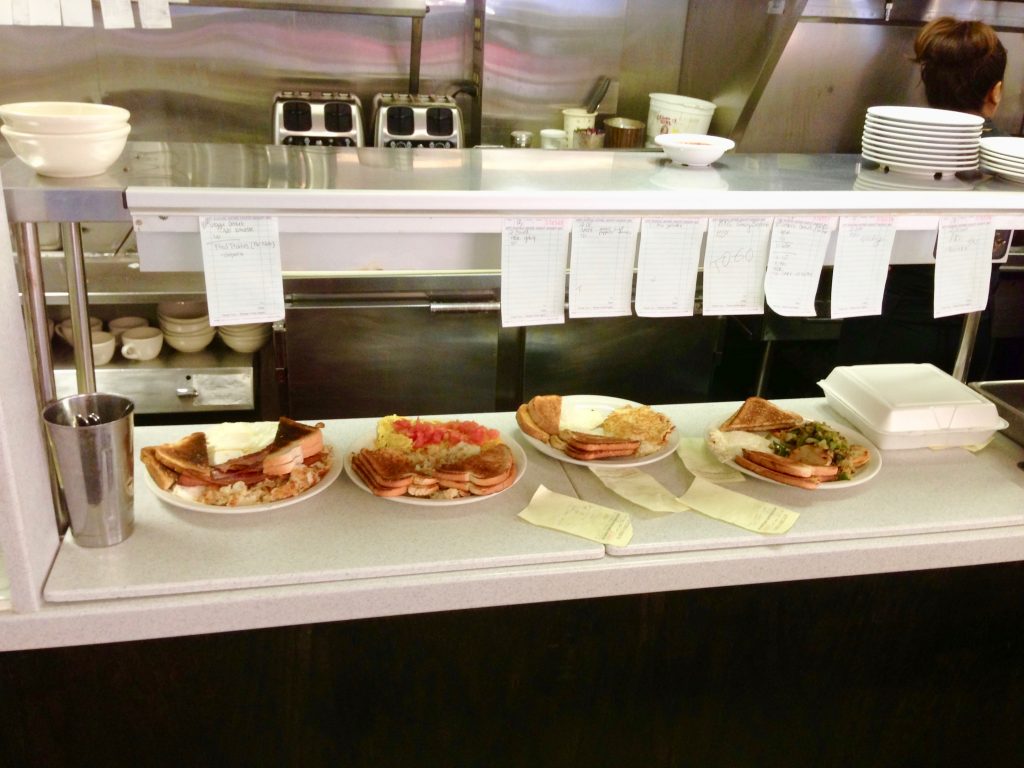
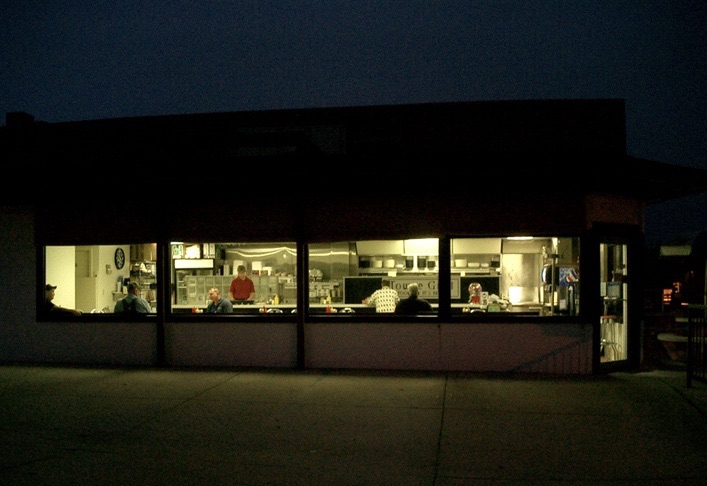
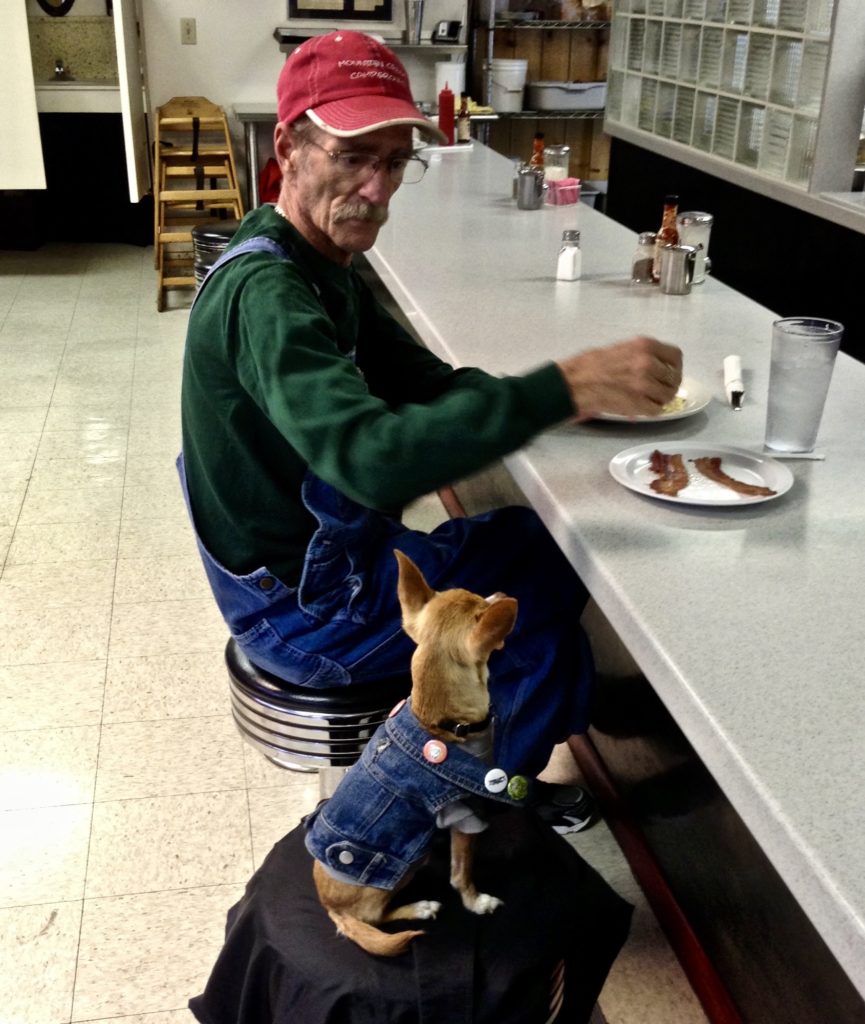
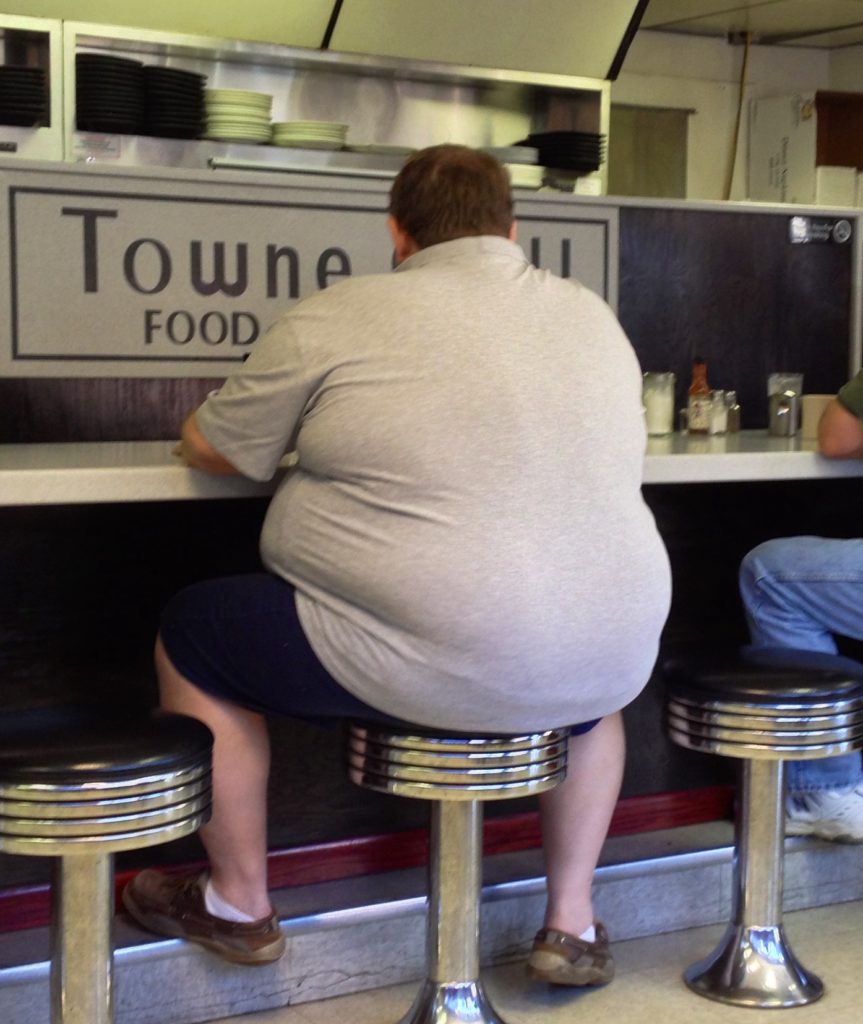
Draining the Swamp
The floodway ditches. That’s what we called the series of small drainage ditches just outside of Kennett, Missouri. I think there were four or five of them. They have a rich history.
Snore
The company I worked for (28 years) held a managers retreat every year. The boss would take half a dozen of us to some nice resort for three or four days. One year, probably 20 or 30 years ago, the retreat was held at a very nice, almost swanky, resort in New Mexico or Arizona one of the rectangular states. The rooms were expensive enough the boss asked us to share rooms and I was paired up with our chief financial officer.
Not long after the lights went out my roommate started snoring more loudly than I have ever heard a human being snore. After half an hour or so, I got up and went down to the lobby with the intention of sleeping in one of the nice chairs. However, the night clerk politely explained that was against resort policy. I asked if there were other rooms available and he assured me they were booked up.
In desperation, I asked him to accompany me to our room. When we reached our floor and started walking down the hall, we got about halfway to the room when the night clerk stopped, tilted his head to the side, listening. He looked at me and asked, “Is that…?” Half a hallway away he could hear my roommate snoring through the closed door.
I followed him back to the lobby, and he was kind enough to find a room for me.
Orangutan Driving Golf Cart
Taking down really big tree
While visiting a friend today, Barb spotted our friends from Korte Tree Service taking down a really big tree. She recorded the clip below around noon and they had been working on it since early morning. Would like to have been there for the entire job.
Homeless Americans
My friend John spotted this tiny home near the Walmart parking lot in Kennett, MO. Not sure if the owner qualifies as “homeless” but John is seeing more tents these days and tells of a homeless encampment nearby.
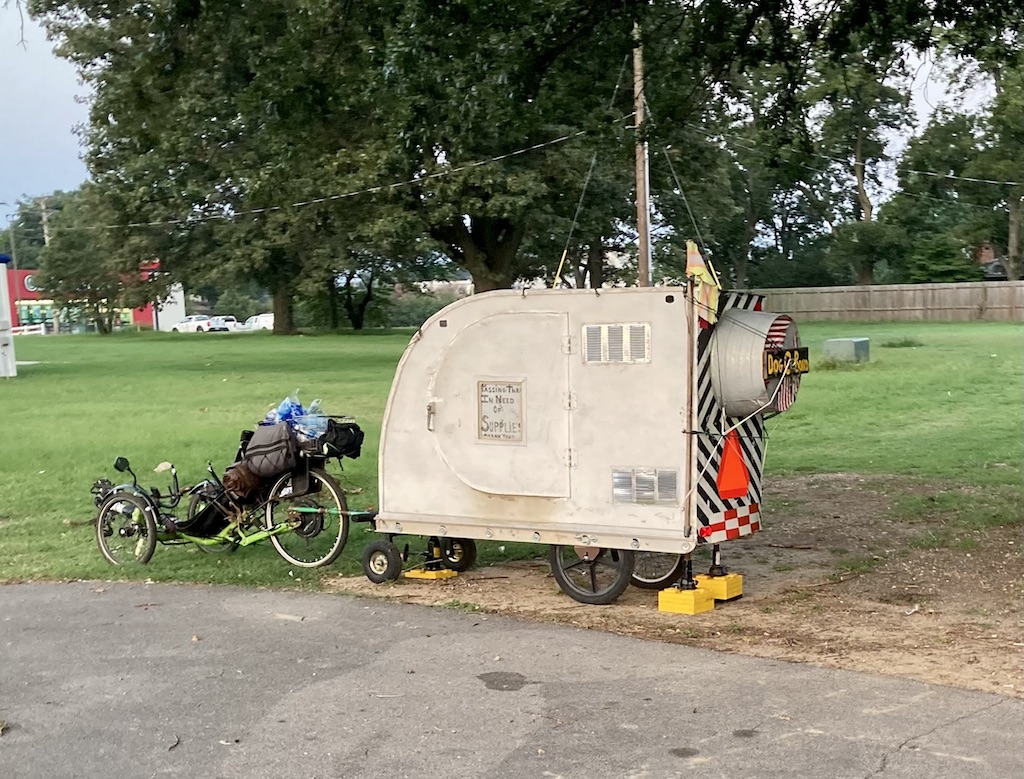
No shortage of stories on this problem but the most depressing thing about the following is it’s from 9 years ago.
Kennett is a small community in southern Missouri. A reminder that homeless is not just a problem in big cities like San Francisco and New York. The homeless are everywhere and they can’t be ignored (forever) and they are not going away.
Jobs
“We must do away with the absolutely specious notion that everybody has to earn a living. It is a fact today that one in ten thousand of us can make a technological breakthrough capable of supporting all the rest…. We keep inventing jobs because of this false idea that everybody has to be employed at some kind of drudgery because, according to Malthusian-Darwinian theory, he must justify his right to exist.”
–Buckminster Fuller, 1970
Default Face
I recently watched an episode of Comedians In Cars Getting Coffee during which Sarah Silverman explains the concept of your “default face.” This is what your face looks like when it is without expression.

Ms. Silverman says you can “change your life” by simply changing your default face. I believe she is correct. I first noticed this about a month ago when I hung a small mirror from the windscreen in the Jeep (to watch the angry motorists forced to go slow behind me). I am also able to see my own face and I immediately saw my default face. Not pretty.
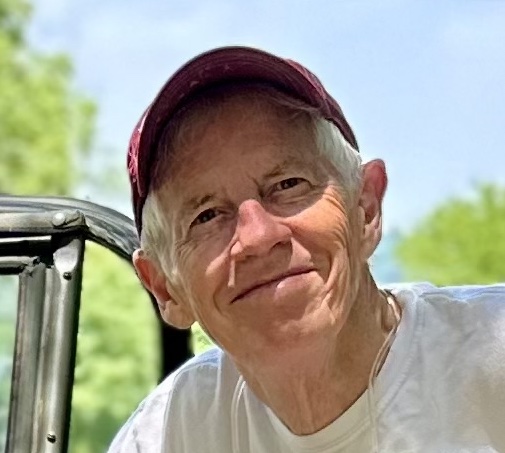
But when I smile… voila! I take five (ten?) years off my face. It will take a while for this to become my default face because it takes a) awareness and b) some extra facial muscles that don’t get used that often.
